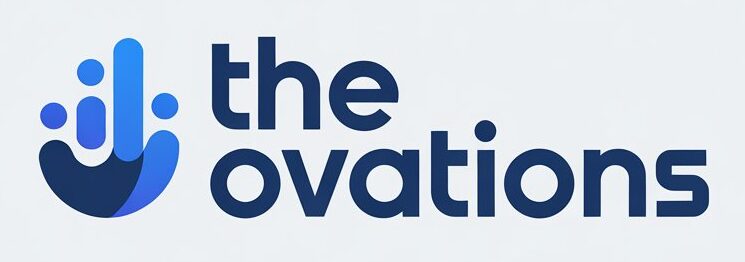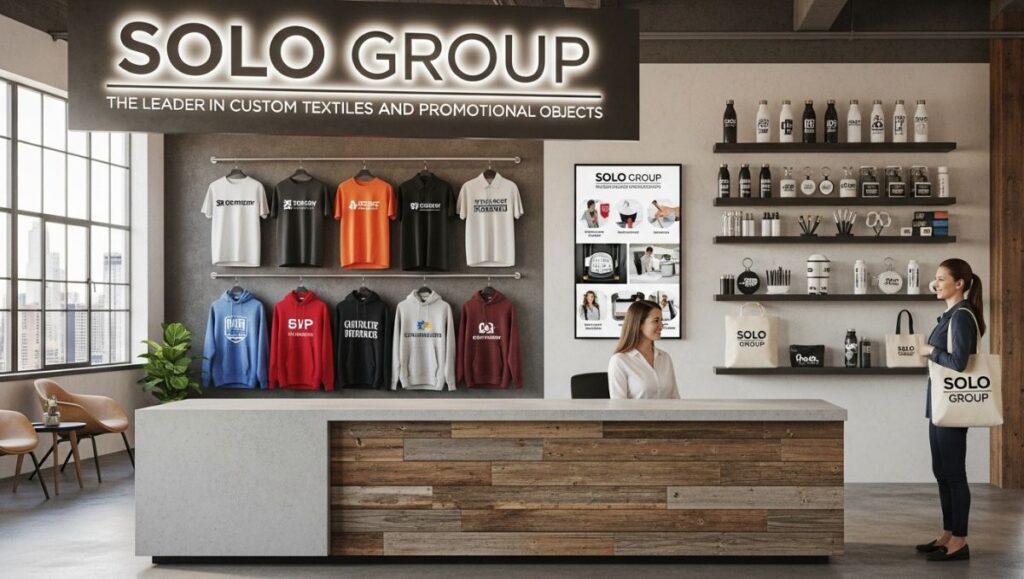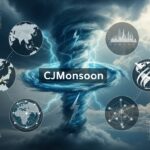Founded in France in 1991, SOLO Group has evolved into a major player in the business-to-business (B2B) market for personalised textiles, objects and promotional items. Solo+2Squarespace+2 From blank garments to printed goods, the company operates a full value chain: sourcing, printing, logistics and distribution.
Origins & Growth
SOLO began as a specialist in blank textiles for printing (t-shirts, polos, sweatshirts) and over time expanded into objects and accessories. In 2022, the company acquired (or merged with) midocean (which had about 60 years of experience in objects and customisation) to create a unified global scale platform of more than 1,600 employees and serving customers in over 60 countries.
Business Model & Capabilities
SOLO Group positions itself as a full-service partner for companies, print-shops and resellers who need custom-branded textiles and promotional items. Some of its key capabilities:
-
Integrated chain: From sourcing fabrics and objects, through printing/decoration, to logistics and delivery across multiple markets.
-
Speed & scale: According to reports, the group holds large inventories (e.g., 40 million+ items in stock), and can deliver in 24-48 hours across Europe for many items.
-
Broad product mix: Textiles (blank or printed), objects, promotional items, accessories.
-
Digital operations: A high share of orders are processed online or via API (about 75%) as the company emphasises e-commerce and agile supply.
-
Sustainability & CSR: With increasing focus on ethical sourcing, traceability, recycled materials and certifications (for example certification of organic cotton use).
Recent Strategic Move: LBO and Capitalisation
A major development surfaced in 2025: SOLO Group is reported to be entering into a leveraged buy-out (LBO) deal with US fund Platinum Equity, with the company valued at around €850-900 million.
Market Position & Competitive Advantage
-
Fragmented industry: The market for custom textiles and promotional items is highly fragmented — many small local print-shops, small suppliers, etc. Solo’s size, integrated operations and logistics give it scale advantages.
-
Logistics and inventory: Holding large stock and being able to fulfill quickly is a major differentiator in this business.
-
Global reach: With presence across Europe, Asia, etc., and serving 60+ countries, the group benefits from global sourcing and distribution networks.
-
Sustainability focus: As customers in textiles and promotional goods increasingly demand sustainable offerings, SOLO’s investment in eco-design, recycled materials and ethical supply is a strategic asset.
Challenges & Considerations
Even with strong advantages, SOLO Group faces several challenges:
-
Supply chain complexity: Managing sourcing across many countries, maintaining inventory, navigating logistics risks and cost pressures.
-
Margins and competition: With many players in the market, pricing pressure is high and margin management is critical — especially as the company invests in sustainability.
-
Currency/geo risks: With global operations, exposure to currency fluctuations, trade tariffs, manufacturing disruptions, etc.
-
Integration risk: The 2022 merger with midocean and the ongoing LBO raise execution risks — relating to culture, systems integration, debt financing.
-
Sustainability vs cost: Sustainable materials and processes often cost more; balancing customer demand for competitive prices and eco‐friendly supply is tricky.
Why SOLO Group Matters
-
Benchmark for B2B custom-goods: SOLO shows how a company in a niche (custom textiles/promos) can scale globally, integrate supply chains, and invest in digital/online operations.
-
Illustration of consolidation trend: The LBO and merger show how fragmentation leads to consolidation — larger players acquiring smaller ones to gain economy of scale.
-
Sustainability as differentiator: SOLO’s commitment to sustainable sourcing in a commodity market exemplifies how even “low-tech” goods can gain competitive edge through ethics and traceability.
-
Rapid fulfilment as value-add: In an era of on-demand e-commerce, even B2B custom goods must meet fast lead-times — SOLO invests accordingly.
Outlook & Strategic Directions
Looking ahead, the key areas likely to drive SOLO’s performance include:
-
Further geographic expansion: Growth in non-European markets, or deeper penetration in existing ones.
-
Product diversification: Extending print/customisation services into new product categories (e.g., tech accessories, wearable electronics, more premium textiles).
-
Digital innovation: Enhancing API integration for clients, on-demand production, personalisation tools, perhaps custom design platforms.
-
Sustainability leadership: Becoming a preferred partner for brands that emphasise sustainable merchandise, CSR, traceable supply chains.
-
Operational excellence: Continued improvements in inventory management, manufacturing flexibility, cost control, margin improvement.
Key Takeaway
If you are a business that needs custom printed garments or promotional items at scale, SOLO Group represents a major force in that arena — combining manufacturing and logistics scale, global reach and a growing sustainability brand. For investors and industry watchers, the company is a strong example of how even traditional product categories (textiles, objects) can generate value through integration, speed, globalised supply and purposeful differentiation.






